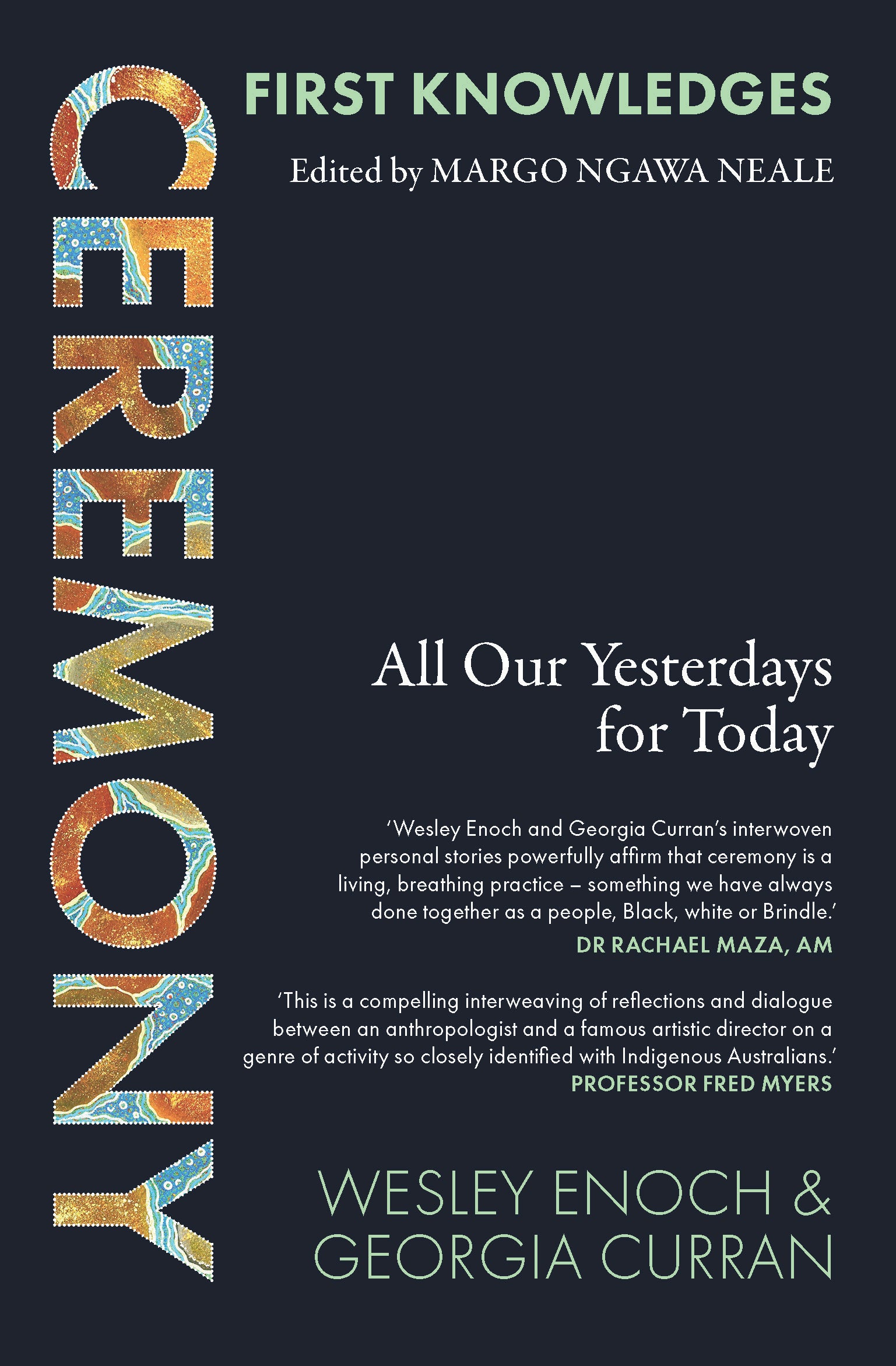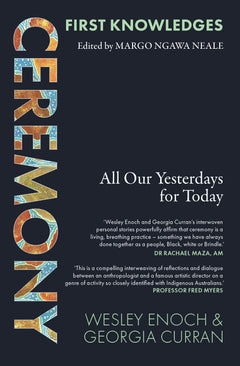
First Knowledges Ceremony
All Our Yesterdays for Today
- Regular price
- $26.99
- Sale price
- $26.99
- Regular price
-
- Unit price
- / per
The First Knowledges series offers an introduction to Indigenous knowledges in vital areas and their application to the present day and the future. Exploring practices such as songlines, architecture, design, land management, plants, astronomy, law, innovation and health, this series brings together two very different ways of understanding the world: one ancient and ongoing, the other modern. The ninth book focuses on ceremonies.
We perform ceremonies every day. Some are personal, some highly organised and others are repeated for generations. For First Nations Australians, ceremonies create the backbone of cultural practice.
Ceremony: All Yesterdays for Today tells how Indigenous ceremonies link people today to those of the past in a continuum of inherited stories, places and memories - from rites of passage to smoking ceremonies and Welcomes to Country, and many others.
The authors focus on examples from their lives, including personal ceremonies from Quandamooka waterways and lands, community-centred ceremonies held by Warlpiri people in the Tanami desert, stories told to them by Elders and experiences of performing at Opening ceremonies for national events. Stories of ceremony are vast and diverse and many ceremonies are of a secret scared nature and cannot be told to those not initiated or intimately connected to the people, as the authors acknowledge. Rather, this book highlights the importance of ceremony across time and place on both a personal as well as national level that recognises and celebrates Australia's First Nations history and culture.
'Ceremonies can take many forms; in First Nations cultures it is the sense of intergenerational observance that connects us to our families, our Countries and our histories. Ceremonies are a way of connecting all our yesterdays to today.'
- Wesley Enoch

Wesley Enoch AM is a Quandamooka man with over 35 years of working in theatre, events and ceremonies. He is a multi-award-winning playwright and director, and his plays include The 7 Stages of Grieving (cowritten with Deborah Mailman), Cookies Table, The Sunshine Club, Black Medea, and more. He has directed groundbreaking shows such as The Sapphires, Black Diggers, The Visitors, and run numerous arts companies including Kooemba Jdarra, Ilbijeri, Queensland Theatre Company, and was Director of the Sydney Festival. Wesley has also created segments for the 2006 and 2018 Commonwealth Games Opening ceremonies. He is currently Deputy Chair of Creative Australia and Professor of Indigenous Practice - Creative Industries QUT.
Dr Georgia Curran is an anthropologist and ethnomusicologist who has collaborated with Warlpiri people and organisations across the Central Australian Tanami Desert for the last 20 years. She is currently a senior research fellow at the Conservatorium of Music, The University of Sydney. Her publications include Sustaining Indigenous Songs (Berghahn, 2020), two-song books - Jardiwanpa yawulyu and Yurntumu-wardingki juju-ngaliya-kurlangu yawulyu: Warlpiri women's songs from Yuendumu (Batchelor, 2014 and 2017), and an edited collection, Vitality and Change in Warlpiri Songs (Sydney University Press, 2024). Georgia also has broader global interests in minority music traditions, publishing an edited collection on Supporting Vulnerable Performance Traditions (Routledge, 2024) and co-producing a podcast Music!Dance!Culture!. She is the current Chair of the International Council for Traditions of Music and Dance (ICTMD) Study Group on Music and Dance of Oceania and sits on the advisory board of the Music and Minorities Research Centre, University of Music and Performing Arts Vienna.
You May Also Like
View moreSign up to our Newsletter
- Choosing a selection results in a full page refresh.

